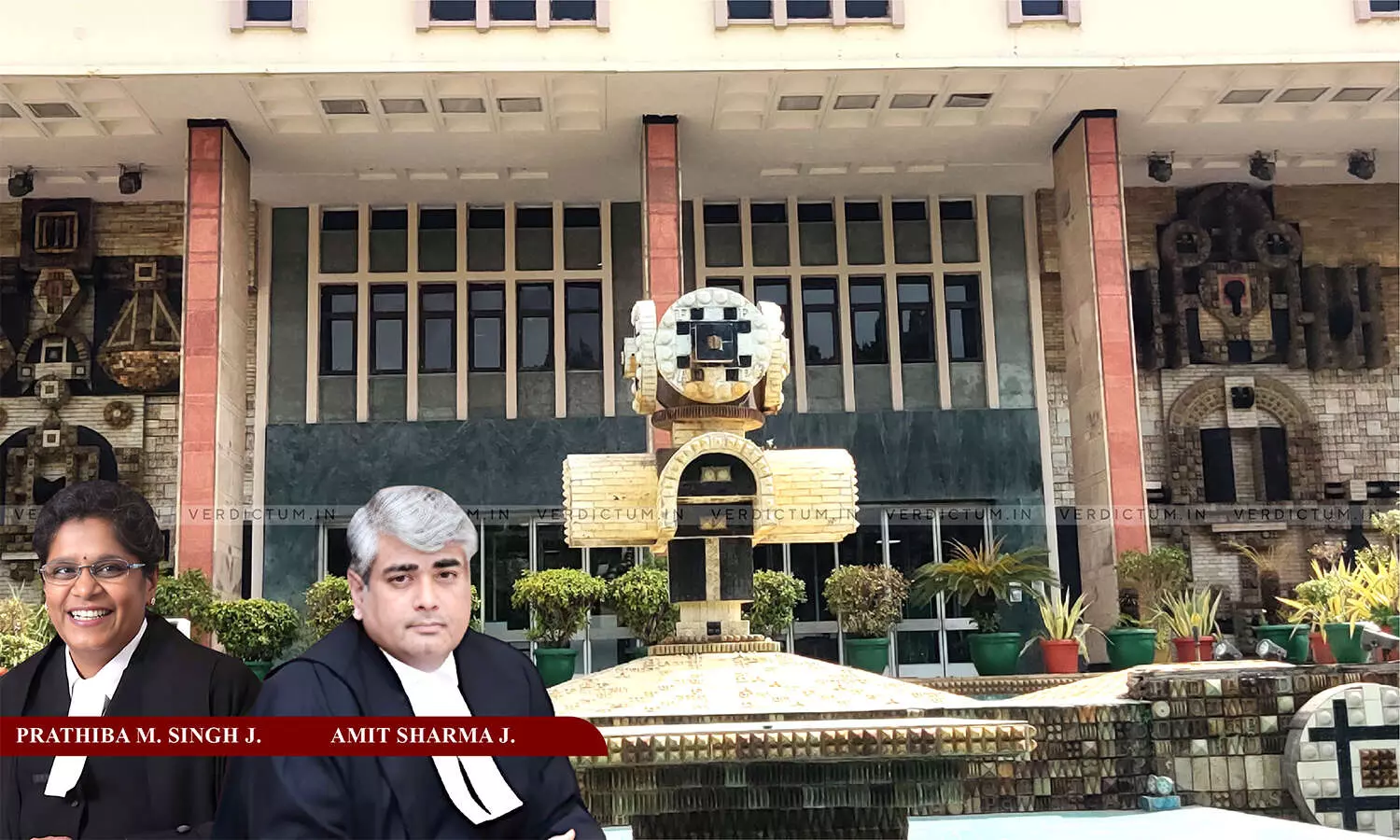
"Post-Mortem Report Does Not Show Deliberate Hitting Only In One Area Of Body To Cause Death": Delhi HC Converts Murder Conviction To Culpable Homicide
 |
|The Delhi High Court modified a murder conviction under Section 302 of the Indian Penal Code (IPC) to culpable homicide not amounting to murder under Section 304 Part II IPC.
The change was made on the basis that the fatal altercation between the accused and the deceased occurred by chance, without premeditation or the intention to cause death.
The Division Bench of Justice Prathiba M. Singh and Justice Amit Sharma was hearing the appeal of two factory guards who had been convicted of murder by a trial court.
The trial court had sentenced the two appellants to life imprisonment under Section 302 IPC. The High Court, however, found that the Trial Court had erred in interpreting the circumstances of the case. The appellants worked as night guards at a factory, where the deceased and the complainant, Prosecution Witness-3 (PW-3), also worked as helpers. The court noted that the appellants had previous disputes with the deceased, but the fatal incident itself was not premeditated.
The incident occurred one night when the appellants were allegedly consuming alcohol on the factory roof. A quarrel broke out between them and the deceased. In the heat of the moment, one of the appellants fetched an iron pipe from his room and struck the deceased. The second appellant then hit the deceased on the head with a pitcher (matka). The injured man was rushed to the hospital but was declared "brought dead" by the attending doctors.
The Court reviewed the testimony of PW-3, noting that the altercation appeared to be a spontaneous outburst rather than a planned attack. During cross-examination, PW-3 testified that the fight began when the deceased encountered the appellants on a staircase. Both the appellant and the deceased exchanged blows, with the deceased reportedly using a brick against one of the appellants.
The Court observed that the altercation was not prearranged, and neither appellant was armed before the fight began, and that the appellant picked up the iron pipe only after the quarrel started, demonstrating that the attack was provoked in the heat of the moment. The Court also emphasized that the fight broke out suddenly as the individuals crossed paths on the staircase.
"In the present case, the post-mortem report Ex. PW 22/A1 reveals that the injuries have been inflicted both in the head area and in the back area as also on the hand and the neck area. The post-mortem report does not show that there was deliberate hitting only in one area of the body of the deceased to cause death. The Appellants seem to have hit the deceased in a fit of anger or rage and did not intend to cause death of the deceased. The injury Nos. 12, 13, 14, 15, and 16 are all injuries on the back, though the post-mortem report reveals that the injury No. 13 is indicative of repeated strikes with a linear blunt object like a danda, rod, etc. Moreover, it is also noticed that out of the seventeen injuries which have been caused, eight injuries have been caused with the pipe and remaining are blunt injuries which may have been caused by the Matka," the Court noted.
Citing the Supreme Court's decision in Pulicherla Nagaraju v. State of A.P. (AIR 2006 SC 3010), the Court noted that in cases where death occurs as a result of a sudden quarrel, without premeditation, the intent to cause death must be evaluated by factors such as the nature of the weapon used, the specific actions taken, and whether the quarrel was spontaneous. It also found that the trial court had misinterpreted these factors, incorrectly concluding that the death was not the result of a sudden altercation.
The Court further cited the Apex Court's ruling in Ankush Shivaji Gaikwad v. State of Maharashtra (2013 AIR SCW 3153), where it was held that sudden fights without premeditation should fall under Section 304 Part II IPC.
Given that the appellants had already served nearly a decade in prison—9 years for appellant no. 1 and 8 years for appellant no.2—the Court modified their sentences to time already served. The conviction under Section 302 was downgraded to Section 304 Part II, recognizing that while the appellants acted in a fit of anger, they did not intend to kill the deceased.
"In view of the nature of the injuries and the fact that there was no premeditation to cause death, this Court is of the opinion that the present case is one where Appellants’ conviction deserve to be converted into Section 304 Part II. The nominal roll would show that the Appellant No.1-Raja Ram has already undergone incarceration for a period of 9 years, 2 months, and 11 days as on 5th July, 2024, and the Appellant No. 2 has undergone 8 years, 1 month and 25 days as on 9th August, 2024," the Court said.
Cause Title: Rajaram v. State of NCT of Delhi [Neutral Citation No. 2024: DHC: 7358-DB]
Click here to read/download the Judgment